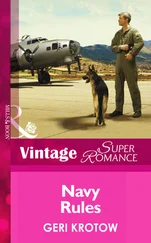I now have a man to nurse back to health and a husband to grieve. I don’t grieve for Henri, but I grieve for the marriage that never was. For the hope I had at the beginning. For the hope of what I once thought was a mutual friendship that might blossom into a true marriage.
Let me start again.
I’ve learned during the past weeks that Henri has helped the Germans rout out the Jewish children from our village. He even knew where they were staying if they’d been sent to relatives.
As he beat me for what would be the last time, he snarled, “I’ll bet you think they’re the same as us, don’t you? Don’t you?” I said nothing. I couldn’t; my lip was swollen and bleeding. But I laughed inside as I knew that once I told the Group what Henri was up to, they’d take care of him. And I had to tell them. It wasn’t about my conscience or my soul. It was about saving innocent lives. The Nazis occupy our country but they can’t take my heart. And I’d die before my husband (in name only) could give them one more piece of information.
I went to Midnight Mass on my own on Christmas Eve. I figured Henri had some urgent evil business, so I went to pray it wouldn’t work out well.
The night was cold and crisp. For once we had no rain, just a wide clear sky above, with the stars floating close enough to touch. I relished my walk home in the dark. This isn’t a Christmas for parties and celebration; it’s one for prayer and hope that our hell will end soon.
I came home from Mass to an empty house. But Henri wasn’t passed out drunk on the sofa, as usual, nor was he waiting to pummel me. A frigid breeze blew through the house and I heard my dog, Belle, barking out back. Henri was always careful to make sure she was outside when he beat me—Belle would have killed him if he’d ever left her in the same room when he hurt me.
Her barks alarmed me with their persistence. I ran through the house to the kitchen door, which stood wide open. I could see a lantern about halfway across the field, which was lit up by the full, full moon. I made out Henri’s silhouette and Belle’s, across from him. But who was the figure next to Belle?
I grabbed one of Henri’s hunting rifles. I may never know why I did; I’d never allowed Henri to find out that I knew how to fire a weapon. He would’ve locked up the rifles, and for some perverse reason I’ve always felt safe knowing they were there. Just in case.
I ran into the field, the frozen mud crunching so loudly beneath my feet that the sound drowned out whatever Henri was saying to Belle, and to the figure. As I neared, I realized with a jolt that Henri wasn’t even aware of my approach. Belle’s barks had helped to cover my steps, but that’s not why he was distracted.
Henri was enraged. But for once, not at me.
“You stupid shit of the earth. Do you think I don’t know who you are, what you represent?” Henri had his rifle up and cocked, pointed at the figure.
It was a man. He wore plain dark clothes and there was a large cloth draped on the ground next to him.
A parachute.
The Group had said they’d use my pasture, but they’d give me advance notice—if they could. Obviously they hadn’t.
“Please, friend, let me explain.” The man spoke perfect Belgian French. Henri started to yell at him in German.
“I’m not your friend, nor am I a friend of any supporter of Churchill’s.”
“I don’t understand,” the man answered, again in fluent French, but I had the sense that he understood Henri perfectly. At this point he’d spotted me, although I noticed he gave away nothing in his expression. He was sitting, both legs in front of him. He held his right ankle in his hands.
“Understand this. You’ll be sorry you didn’t break your neck in the fall.” Henri raised his barrel and from his stance I knew he was a stroke from killing the man.
“Henri, don’t!”
Henri barely started. He didn’t even look at me.
“Shut up, Esmée. Take Belle back in the house before I shoot her, too. You know not to disobey me.”
Disobey him?
I hoisted my rifle and shot Henri in the head.
His body dropped in slow motion, and I wish I could tell you I felt guilt or recrimination or compassion at his fate. But all I felt is what I feel now. If I must suffer in hell for Henri’s blood, better that than letting him spill the blood of more innocent Jewish families. God only knows how many have met their untimely fate at his hands, through his help.
“Nice shot.”
Again, the stranger spoke in fluent French and I responded the same way.
“I just saved your ass and all you say is ‘nice shot’?”
“Merry Christmas?” he offered, and I laughed.
I actually laughed. I, who had just murdered my husband in cold blood, after Christmas Mass. War does strange things to a person, and sadly I’m no exception.
After our laughter stopped, we were left with the still, cold night and the prospect of figuring out if indeed this man belonged here. And what was I to do with him?
I studied him more closely. He looked like any local Belgian. A full beard and spectacles covered most of his face. I couldn’t see much more in the dark, no matter how bright the moon. But he had a quiet, intense presence about him.
“You are Muriel.”
He spoke my Resistance code name. He’d heard Henri call me “Esmée.” Still, he could be an undercover German. A double agent. But at that moment I decided to trust him.
“Yes, I am.”
“I am from across the way.”
This time he spoke in English.
He meant, of course, the English Channel. He was another one of the many Allied operatives who were landing in Belgium to help the Resistance.
I put down my rifle. It ran through my mind that this Ally probably thought I was crazy. That I could stand there having a calm chat with him in my cow pasture on Christmas morning, as my husband’s body lay next to us.
“Did you love him?” His question shocked me. I responded before I could think.
“I hated him.”
“So saving my ass wasn’t too much of a sacrifice, then?”
“No.”
I wish I’d been able to explain to him that I wasn’t a monster. That years of living with this horrible man in a horrible time had left me with no hope for my future. That my only reason for getting up each morning has been to save more people from the Germans, and to save any future victims of Henri’s efforts to aid the enemy.
But all I said was “no.”
Melinda heaved the journal off her lap and placed it on the mahogany end table she and Nicholas had refinished last year.
The conversation they’d had then played in her mind as if it had just happened.
She’d landed a position in Senator Hodge’s local office but she’d been offered one in Washington, D.C. She’d wanted to take it. Planned to take it.
Nicholas had rejected her suggestion that they move. His accounting practice was flourishing and, even though he’d have no problem landing a great job in D.C., he didn’t want to leave western New York.
“It’s all we’ve ever known. We’ve been so happy here,” he’d argued.
“Exactly. It’s all we’ve ever known. But it was pretty damned desolate while you were in Afghanistan.”
She’d loathed the entire year he’d been gone, and was grateful he’d returned in one piece.
But the year of separation and isolation had stirred a restlessness in Melinda that she needed to explore. She was like her father, James, who’d worked as a civil servant, first for the municipal government in Buffalo and then in Arizona. She was interested in federal politics. Grammy, like Nick, had thought maybe it was time they had a baby, but the baby never came.
They’d been unable to conceive.
“Honey, we’re in an adjustment period,” he’d said that fall day. “I’ve only been back six months, and we were apart an entire year.” He’d placed his hands on her shoulders, but Melinda couldn’t accept any comfort from him. Not then.
Читать дальше












